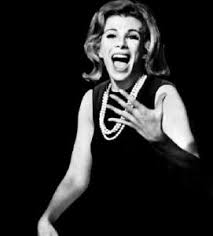I swear it, us Jews have Hamas and Iran and the rest of the world aiming rockets and insults and hatred at us, and we still can’t get out of the way of our own.
Since I’ve lived in Savannah, the Jewish community has simmered with various conflicts that I’ve managed to skirt at their margins: Some have been shocking, like the 2006 conviction of a local Orthodox man for child sex trafficking, which people were still whispering about when we moved here. There is the ongoing effort to get the JEA pool open on Saturdays, and no one ever seems to agree on whether you have to go to both days of Rosh Hashanah services or if one will do. Mostly it’s been political quarrels that have divided people, like the awkward removal of our congregation’s rabbi after 20 years and the bitter fight over the new preschool and subsequent decampment of the Orthodox day school from the JEA.
I’ve known people on all sides of the scandals and issues (including the lovely woman who was married to the sex crimes monster) and I try to stay non-judgmental even though I am pretty terrible at it. For me, being Jewish is about faith in and love and heritage and tradition, and anything that distracts from that is a waste of my precious time. Whatever tsimmes is going on at the synagogue board meetings or behind the Federation walls seems so removed from lighting Shabbat candles over a delicious dinner after a hectic week, of reciting Sh’ma together at bedtime, of singing El Norah in the late afternoon trance of Yom Kippur.
Maybe I’m just a selfish schmendrick, but I’d rather leave the bureaucratic business of Judaism to those who have the time and will. I don’t like meetings and I don’t want to be treasurer of anything, ever. I have enough on my life’s plate other than doing a little volunteering at the Jewish Food Festival and a five-year stint teaching kindergarten to the Shalom Schoolers.
But I guess like Jacob wrestling with the angel, it’s rather impossible to be Jewish without conflict. The latest local discord comes from an incident that happened the morning before last year’s Jewish Food Festival at the Shalom School. New York writer Paul Berger did a pretty good job of objectively reporting what happened in a recent article in the Forward, which has been passed around the country and has garnered a slew of comments underneath it.
If you’re familiar with the issue, you already know that last that sunny October morning, the rabbi of Savannah’s Conservative congregation gave the fourth graders an inappropriate—and some believe damaging—lecture involving sex trafficking and prostitution.
Some of the kids were extremely upset by the rabbi, and their parents asked that he no longer be involved in the Shalom School for the rest of the year. (A few weeks ago the Shalom School announced that will be the case going forward into the new school year.)
Other children who were present on that day shrugged off the rabbi’s discussion of sexual abuse, and their families are upset that the first group of parents is dictating the direction of the school and denying their kids the scholarly presence of the rabbi.
As our Jewish karma would have it, this was my child’s class. But she was not there that day. I figured it was a shortened lesson because of the food festival, and I felt that allowing her sleep in was more beneficial to her health after a hard soccer game the day before. (If I thought she would get more out of a shortened lesson than an extra hour of sleep, I’d make her go. More on that later.)
Many of the families have left the Conservative congregation for our Reform synagogue, which doesn’t quite solve anything in a town as small as Savannah. The Shalom School is a cooperative venture between the two congregations; Hebrew instruction is on Wednesday afternoons at the Agudath Achim shul, Sunday mornings are spent learning about Jewish traditions downtown at Mickve Israel.
It’s been really difficult to navigate neutrality on this one. Because my child was not directly affected, I have had no point of reference to “pick a side.” I believe that the kids who were upset were telling the truth and honor their parents’ concerns. I also understand the viewpoint that the while the incident was weird and disturbing, it isn’t worth destroying the rabbi’s career over (finding another position at this point will prove challenging now that it’s been a national news story.)
There have been town hall meetings, which I haven’t attended, and private alliances formed that I am not a part of, because frankly, I didn’t and still don’t have a whole lot to contribute on the matter. I’m just over here washing laundry from camp and looking forward to burnt honeycakes for Rosh Hashanah and wondering if we will ever get it together to make a real sukkah in our backyard.
I can’t manufacture an outrage either way that I don’t feel. I just feel sad, since it seems the community has broken apart once again, right down the middle of my daughter’s Shalom School classroom.
The religious school year has started, and I’m way conflicted. Some parents are calling for background checks on all staff and better curriculum management, which is not unreasonable, yet as far as I know these demands haven’t been implemented. I know from experience that lesson planning can be challenging, but the coordination of particular topics definitely needs to be addressed, especially as the kids get older. If my child brings home one more set of plastic painted candleholders I’m going to go insane.
The drama that’s erupted out of the rabbi incident has been the straw that broke the proverbial camel’s back (an expression not actually in The Book Proverbs, in case you were wondering), and it turns out, many families have not been very happy with the two-synagogue partnership or Shalom School in general. Another group of parents is forming their own chavurah, an informal, clergy-less Sunday morning study group as an alternative to Shalom School, which sounds nice, especially since it might eliminate the need for another separate day for Hebrew lessons for our already-overscheduled kids.
Except that deep in my heretical heart, way way down in my seditious soul, I think Sunday School for Jews is dumb.
For centuries — millenia, even — Jews have gathered at synagogue on Friday evenings and Saturday mornings. Sundays are for sleeping in or shopping at an empty grocery store while your neighbors are at church. Yet the Reform and Conservative movements insist that Jewish education take place on Sunday mornings, all the while complaining that young families never show up to synagogue.
Let me tell you something, Jewish leaders: No one–whether you are a frum Orthodox with a kosher kitchen or a bacon-eating agnostic–wants to spend both weekend mornings at synagogue. When are we supposed to tend our gardens, clean the shutters, make love and/or get lost in Home Depot?
Most Reform and Conservative Jews pretty much ignore the Saturday Sabbath to run errands and go to soccer games, then drop off their kids on Sunday mornings for some menorah crossword puzzles and read out of a textbook. This is not working.
If the point is to prepare our children for their bar and bat mitzvahs, then wouldn’t the best educational experience be attending the Sabbath services they’re eventually supposed to lead? And if another point is to foster Jewish community and joy through from generation to generation, wouldn’t it also be better to provide programming for everyone under the same roof on the same day?
If it were up to me, Shalom School would take place before services on Saturdays, and then the kids would help read Torah with some great singing and prayerful noise led by the elders, and afterwards everyone would have a nice nosh and go home for a nap. Then on Sunday we’d all be free clean out our garages or watch an entire season of Community on the iPad.
So if I haven’t registered my kid for Shalom School or Hebrew tutoring or a study group just yet, it isn’t because of any scandal. It’s my fundamental problem with the system itself. And it may never get resolved to my liking, and that’s cool, because my family’s Judaism lives in the candles, the prayers, the blackened honeycakes and our faith.
But it sure would be nice to commune with others without any conflict.
 Living in Savannah, GA, one can not really escape the horrid specter of slavery: I mean, if you are any kind of awake, you understand that this pretty little city, the South, this whole dang country wouldn’t be here if weren’t for the labor and skills of enslaved Africans.
Living in Savannah, GA, one can not really escape the horrid specter of slavery: I mean, if you are any kind of awake, you understand that this pretty little city, the South, this whole dang country wouldn’t be here if weren’t for the labor and skills of enslaved Africans.







